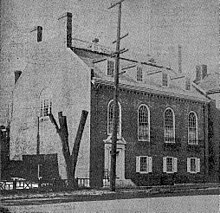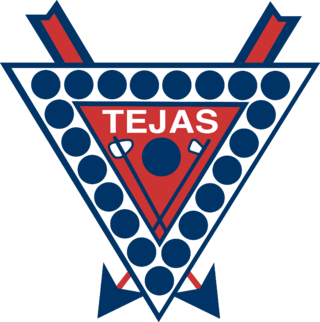History
The Phoenix – S K Club is an all-male final club at Harvard College that formed from the amalgamation and reorganization of the Phoenix, Sphinx, and Kalumet clubs. [1] [2]
Phoenix Club
The Phoenix Club was formed in 1902 by a group of men who were members of Theta Nu Epsilon, a national sophomore society formed as an offshoot of Yale University's Skull and Bones. [3] The Alpha Iota chapter of Theta Nu Epsilon at Harvard College was chartered in 1895. [2] The members of T.N.E. organized the Phoenix Club for residential and dining purposes, yet still maintained ties as the Alpha Iota chapter to the rest of the society until 1913 when there was a division in that society. It is not known when members of the Phoenix Club ceased to meet as members of Theta Nu Epsilon.
Starting in 1902, the Phoenix Club occupied a series of houses, starting with the John Hicks House at 64 Dunster Street, then in 1906 it moved to 97 Mt. Auburn Street, then in 1920 it moved again to the northeast corner of Winthrop and Holyoke Streets.
Sphinx Club
The Sphinx Club grew out of a small secret society founded in 1897. Originally known by several names, in 1900, almost all the members of this organization joined together to form the Sphinx Club, located at 1172 Massachusetts Avenue, then 55 Mt. Auburn Street. In 1903, the Club moved to 72 Mt. Auburn Street, the current site of the Phoenix—S K Club.
Kalumet Club
The Kalumet Club was started by members of the Harvard chapter of Beta Theta Pi, [4] Many in the class of 1900, occupied a small house on the current Harvard Lampoon building site on Mt. Auburn Street. In 1900, the Club was formally organized as the Kalumet Club and moved to 1178 Massachusetts Avenue. In 1901 it moved to 104 Mt. Auburn Street, then three years later it moved again to 44 Church Street, where it remained until its amalgamation with the Sphinx in 1914.
S K Club
The adoption of the Inter-Club Agreement and other conditions made the union of these two Clubs desirable, so in 1914, members of both clubs voted that their undergraduate memberships should join the new S K Club. Construction was begun on a new clubhouse on the site of the Sphinx house at 72 Mt. Auburn Street, and the Kalumet house was employed in the meantime. The new building formally opened on April 1, 1916.
The Phoenix – S K Club
In 1925, negotiations for the amalgamation of the Phoenix and the S K were started, and in January 1925, undergraduate bodies of both clubs voted their approval. A new club, The Phoenix – S K, was formed, which occupied the S K clubhouse at 72 Mt. Auburn Street. With time, due to changing conditions within the university, it became advantageous for The Phoenix – S K to be classified as a final club, so on May 24, 1930, the Club became final.









